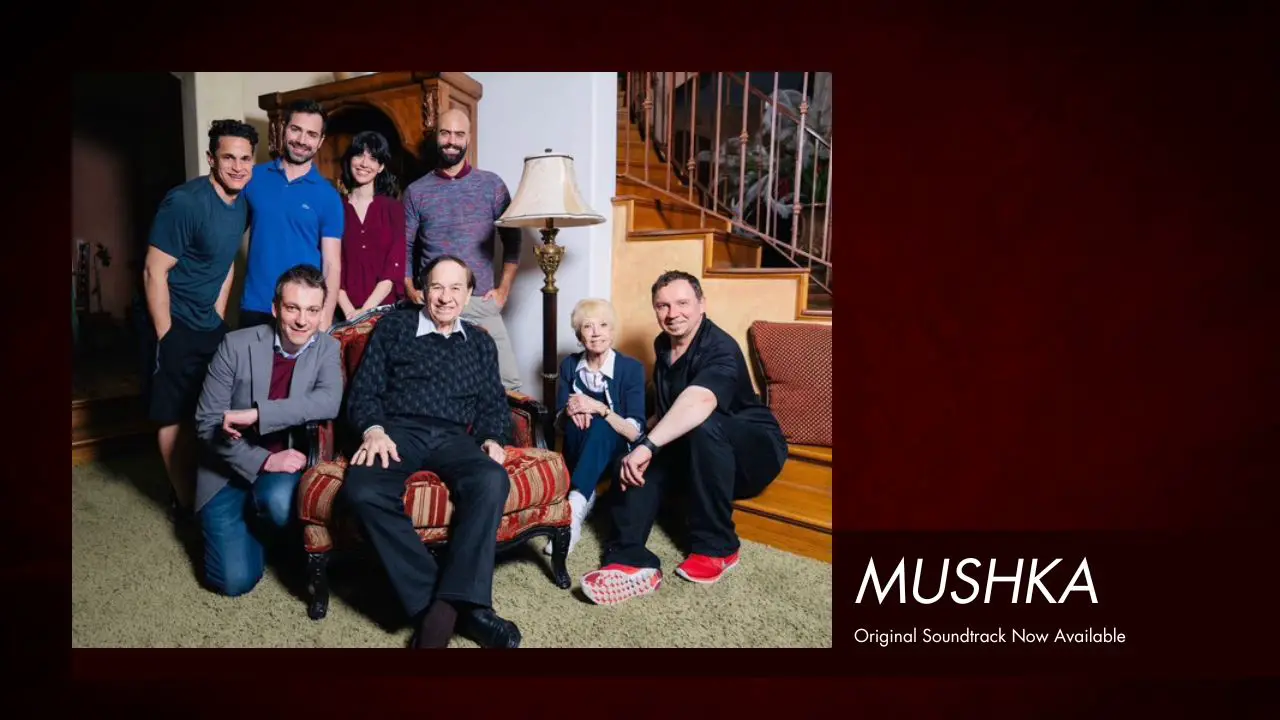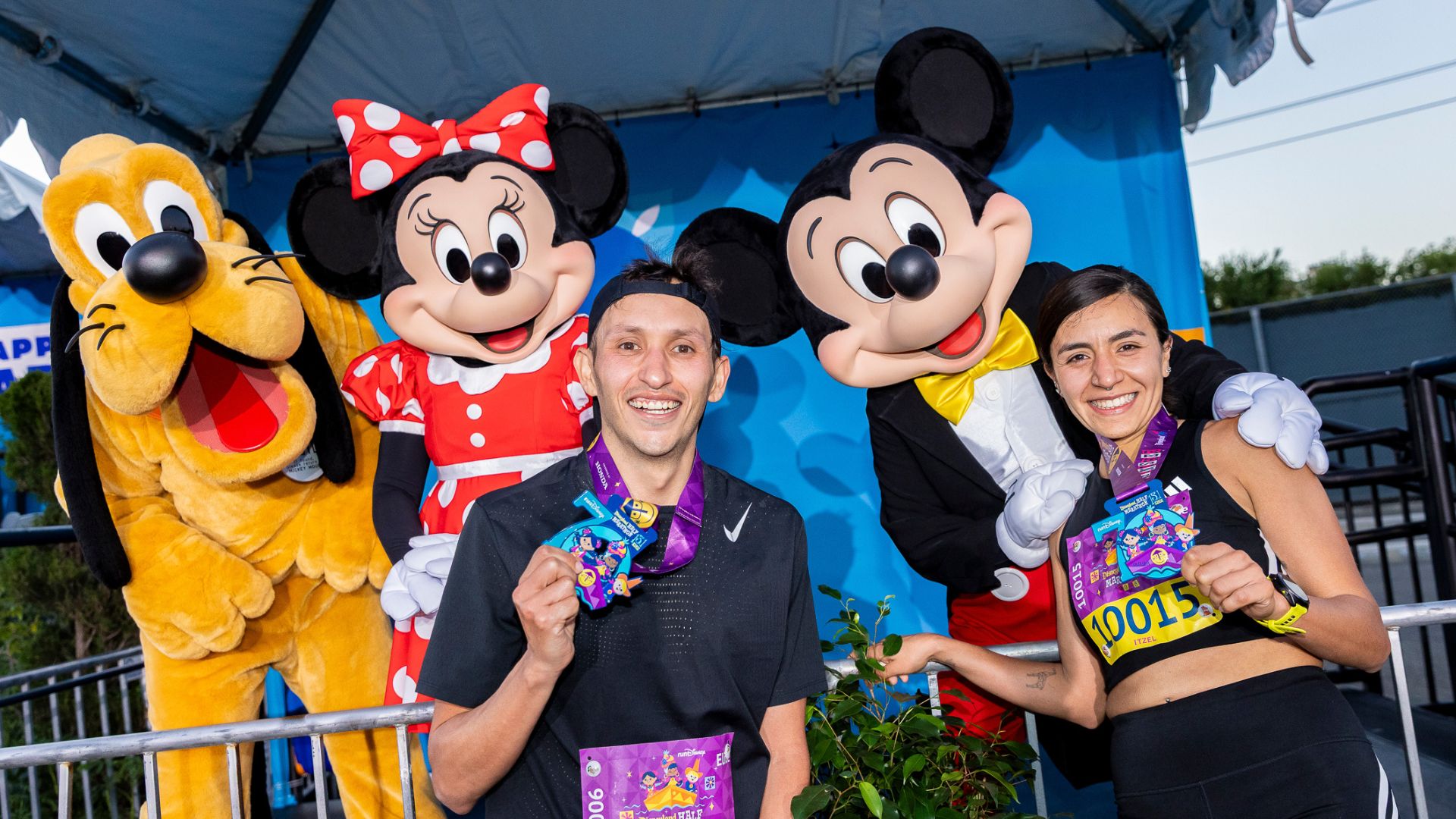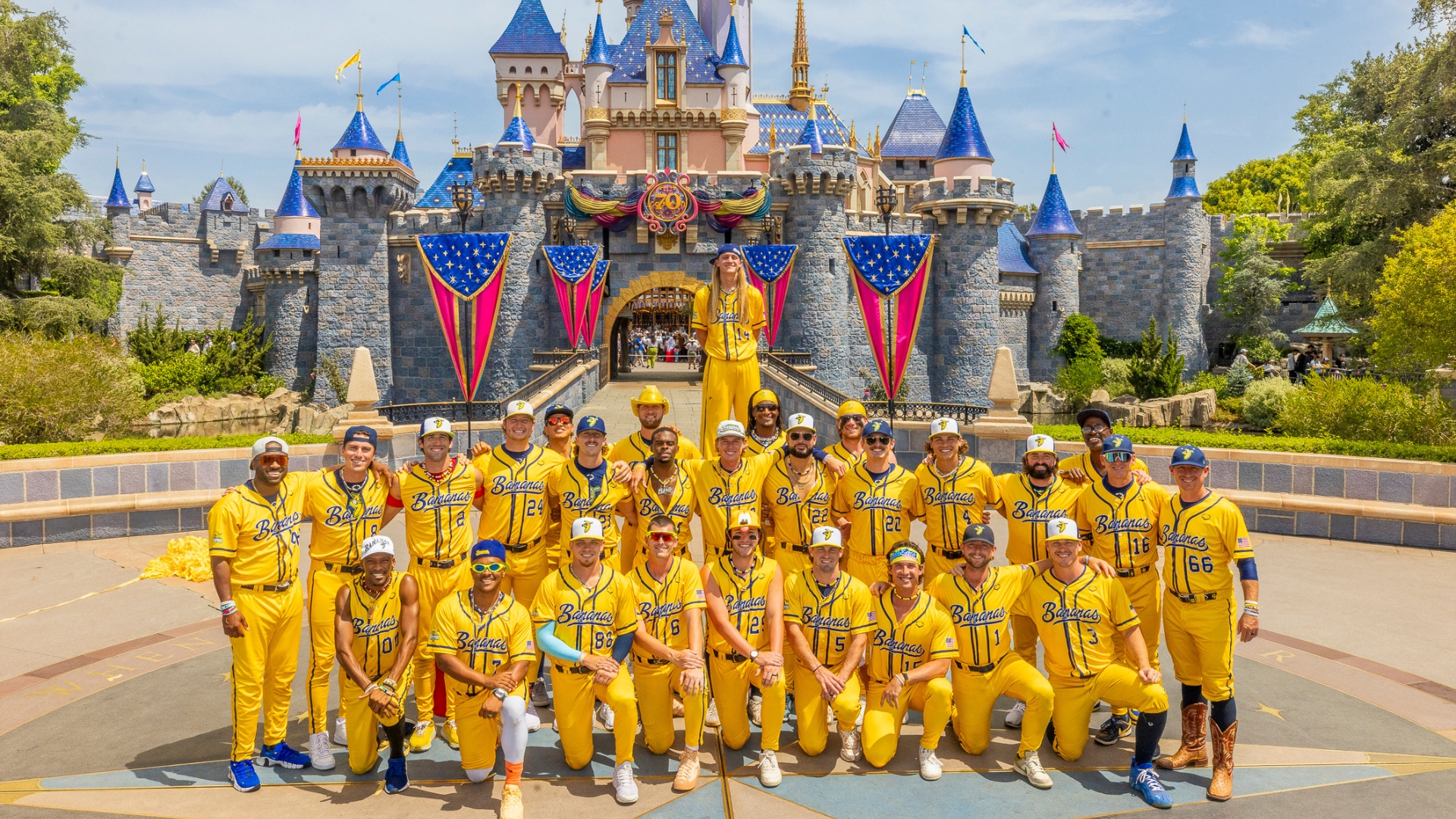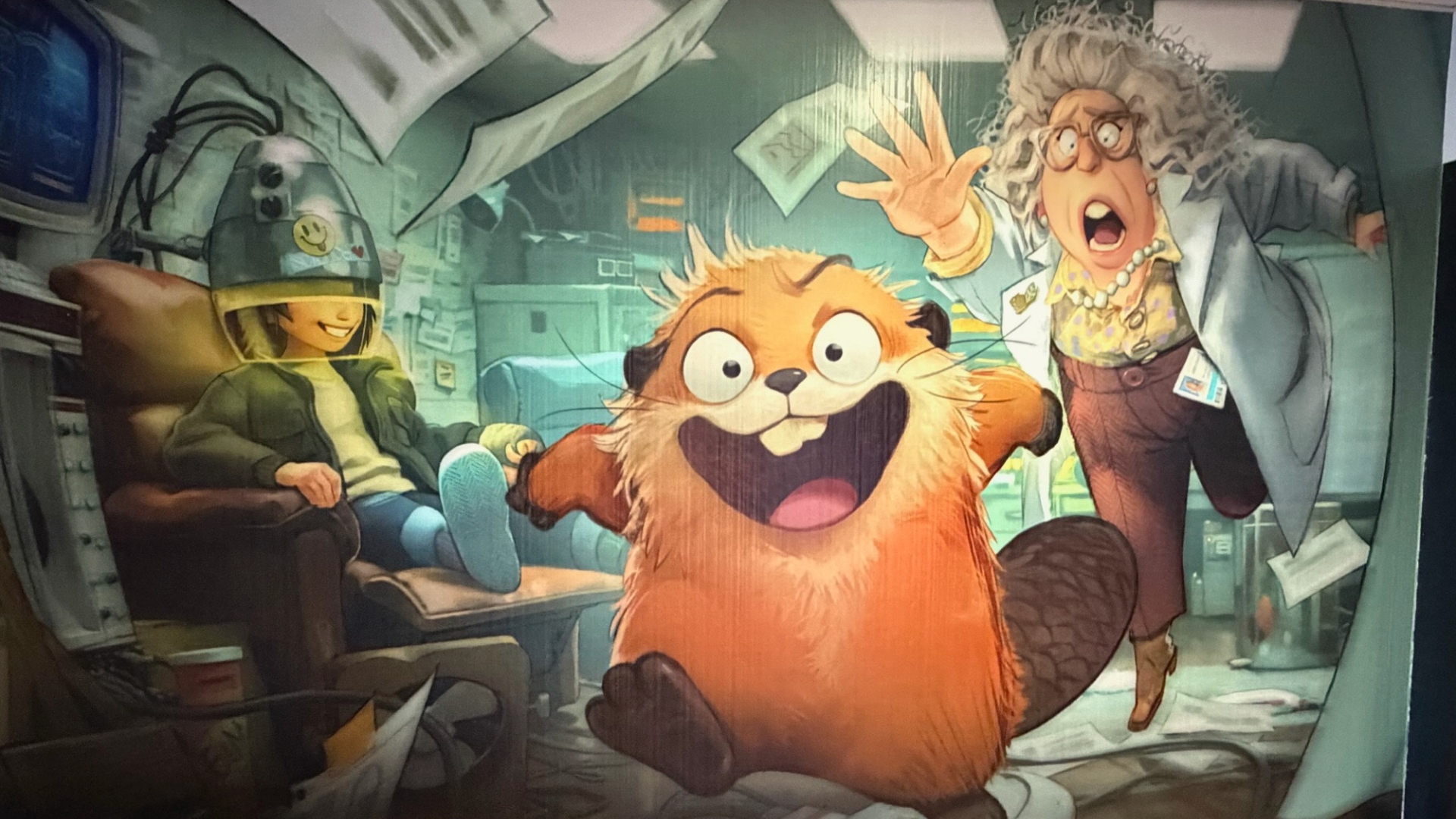The original score for the Andreas Dejas’ film MUSHKA is now available on streaming services. The beautiful score has music by Fabrizio Mancinelli. It also has Mushka’s Lullaby, composed by Disney Legend, Richard Sherman, arranged by Fabrizio Mancinelli and performed by Holly Sedillos. Mushka’s Lullaby won the Best Song in a Short Film category at The Hollywood Music in Media Awards (HMMA). The song is performed by veteran singer/actress Holly Sedillos.
Grandma Needs Me/Big Cat Rescue Team from the original score for Mushka can be heard here:



“Drawing inspiration from musical legacies of the past, I yearned to craft a score that transcended mere folkloric conventions. The animation’s exquisite visual aesthetic, reminiscent of beautifully illustrated books, served as a guiding light, influencing the musical nuances that painted each frame. The result is a symphonic score that transcends borders, cultures, and eras,” Mancinelli shared.
He added, “I was overjoyed when Andreas asked me to compose the score for “Mushka”, a love letter to his art form, hand-drawn animation. It was an extraordinary opportunity for me to collaborate with not one, but two Disney Legends, Deja himself and Richard M. Sherman, who had already composed a unique and instantly recognizable theme for “Mushka”, adding another layer of excitement to our collaboration.”
The soundtrack can be found on streaming services or listened to below.
MUSHKA Track List
- Happy New Year – Fabrizio Mancinelli
- I’ll Be Alright – Fabrizio Mancinelli
- Arrival At The Station – Fabrizio Mancinelli
- The Miners / A New Home – Fabrizio Mancinelli
- Out There In The Forest – Fabrizio Mancinelli
- Chasing The Tiger – Fabrizio Mancinelli
- I’ll Call Him Mushka / Growing Together (feat. Holly Sedillos) – Fabrizio Mancinelli
- Instinct Awakes / Sarah’s Nightmare / The Card Game – Fabrizio Mancinelli
- They Want Mushka / Chase In The Forest And Farewell – Fabrizio Mancinelli
- Grandma Needs Me / Big Cat Rescue Team – Fabrizio Mancinelli
- Mushka’s Lullaby (feat. Holly Sedillos) – Fabrizio Mancinelli
- Mushka’s Lullaby (Instrumental) – Fabrizio Mancinelli
- Fantasia From Mushka (For Flute And Piano) [feat. Sara Andon, Simone Pedroni] – Fabrizio Mancinelli
- Mushka’s Lullaby (For Flute And Piano) [feat. Sara Andon, Simone Pedroni] – Fabrizio Mancinelli
About MUSHKA
MUSHKA tells the story of the Ukrainian girl Sarah who raises a Siberian tiger during the 1970s. She calls him Mushka, when she discovers an “M” shaped birthmark on the tiger cub’s forehead. The word Mushka is a Russian term of endearment, like sweetheart.
As the tiger grows into adulthood, Sarah finds out that a few shady people in the village plan to kill and sell him for profit. In an effort to save him she takes Mushka deep into the forest to the same spot where she found him as an orphaned cub. Sarah hopes that her tiger will stay in the forest and learn how to be a wild animal, far away from any humans.
Other characters in the film include Sarah’s grandmother, her father as well as Alex, a local Siberian boy.
The story’s theme can be summed up like this: Having to let go of someone you love is the hardest thing, but life has a way to provide hope and happiness again.
About MUSHKA Director Andreas Dejas
Andreas Deja first applied for a job as a Disney animator at the age of 10. Born in Poland and raised in Germany, he remembers writing to the studio immediately after seeing “The Jungle Book.” “I’d never seen a Disney feature before,” he recalls “It was one of those key experiences because I just couldn’t believe what I’d seen. All those drawings moving, thinking and acting so real.” The Studio wrote back to Deja explaining that there were no openings but they were always on the look-out for new talent. This offered him the encouragement he needed and the motivation to work hard towards that goal. At the age of 20, after completing his studies, he applied again and this time he was accepted. Working with Eric Larson, one of Disney’s legendary “nine old men,” Deja completed several tests and went on to do early character design, costume research and animation for “The Black Cauldron.” His next assignment was on “The Great Mouse Detective,” for which he animated the mouse queen and her robotic twin. Deja helped design many of the characters for “Oliver & Company” and did some animation before spending a year in London as a lead animator on “Who Framed Roger Rabbit,” under the direction of Richard Williams. On “The Little Mermaid,” Deja oversaw the animation of Triton, a powerful figure that required expert skills in draftsmanship and acting ability. For Disney’s Academy Award-winning animated musical “Beauty and the Beast,” he served as the supervising animator for the first of his many Disney villains, the very pompous and narrow-minded Gaston. Deja continued to explore his darker side by designing and animating the evil vizier, Jafar for Disney’s animated-musical hit, “Aladdin” (1992). He went on to supervise the animation of the power-hungry villain, Scar, in “The Lion King,” which has become not only The Walt Disney Studios’ most successful film, but quickly earned a place as one of the industry’s biggest films of all time. For his next assignment, Deja relocated to Disney’s Paris animation facility for a stint overseeing the animation of Mickey Mouse in “Runaway Brain,” the Studio’s first new Mickey short since 1953 and an Oscar nominee in 1996 for Best Animated Short. Following that, he returned to Burbank, where he took on the challenging assignment of bringing life and personality to the title hero in Disney’s 35th full-length animated feature, “Hercules.” He went on to design and supervise the animation for the charming and unpredictable little Hawaiian girl, Lilo, in “Lilo & Stitch,” which has been hailed as one of the Studio’s most entertaining and imaginative features. Deja contributed animation for several characters in Disney’s live-action/animated musical “Enchanted,” and served as one of the supervising animators on Goofy’s big-screen return in the short film, “How to Hook Up Your Home Theatre.” He was a supervising animator on Disney’s hand-drawn animated feature, “The Princess and the Frog”, released in 2009. Deja supervised the animation of Tigger for a new Winnie the Pooh feature, which was released theatricaly in 2011. In 2007, he was honored with the Winsor McKay Award from ASIFA (the International Animated Film Association). In 2015, he was named a Disney Legend by the Walt Disney Company. At present time Andreas Deja is working on his own independent animated short films. He also contributes regularly animation related material on his blog “Deja View”.
Last year at The Walt Disney Family Museum Daps Magic had the opportunity to interview Andreas Dejas. Part of the interview included him discussing MUSHKA. The interview can be seen here:
More information about MUSHKA can be found at mushkathemovie.com. What do you think about this new original score? What is your favorite track? Have you seen MUSHKA yet? What did you think about it? Share your thoughts and opinions in the comments below!






